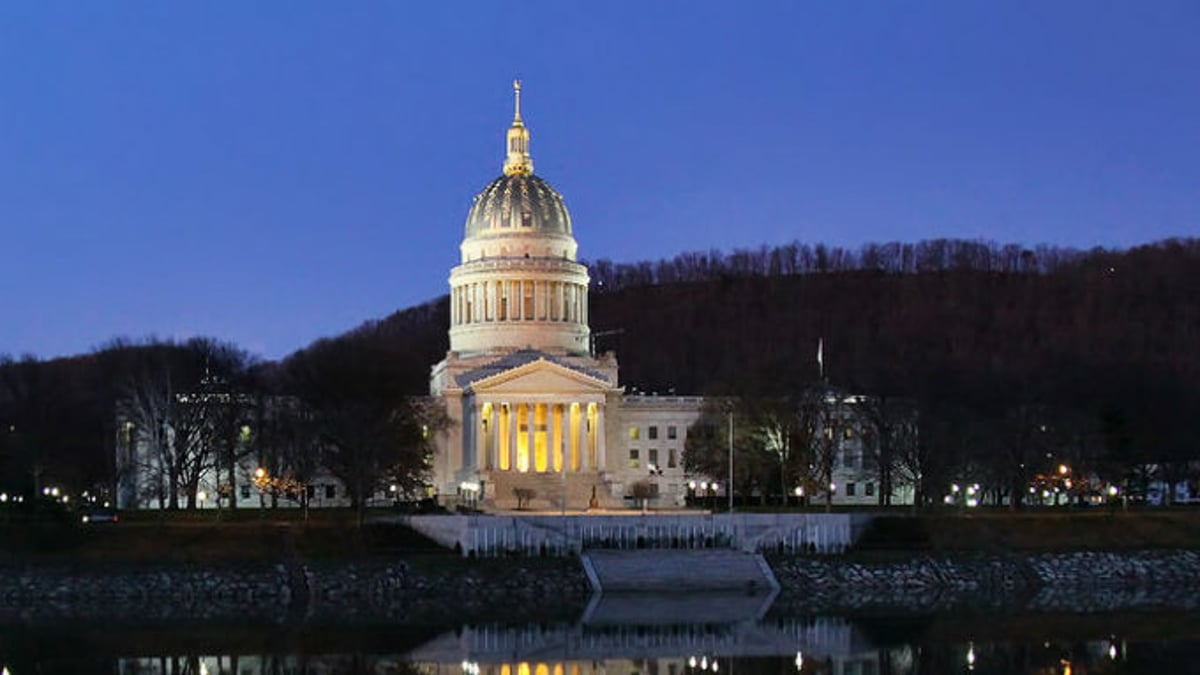West Virginia Online Gaming Bill Lingers as Deadline Nears

A sweeping online expansion bill is closer to passage than ever in West Virginia, but a key hurdle in the state Senate – and a looming deadline – could squash the legislation before it can come into law.
Overwhelmingly passed by the West Virginia House of Delegates last month, a major online gaming expansion bill that would permit online, mobile poker as well as casino games has languished in the Senate. Lawmakers haven’t taken any action on HB 2934 since it was assigned to the Senate Judiciary Committee Feb. 23.
Baring a highly unlikely procedural maneuver, the bill requires approval by the Judiciary Committee before it can go to the full Senate floor for a vote. More than 200 bills are pending in that committee alone, which has so far not prioritized the gaming expansion measure.
The committee was not scheduled to discuss the bill at its meeting March 4. In each meeting It typically takes up only a handful of the dozens of legislative proposals introduced, meaning there’s stiff competition for any bill to make the committee’s agenda.
More alarming for bill’s supporters is the pending end of the legislative session. West Virginia’s legislature will only meet for 60 days this year’s session, which concludes March. 9.
Should Senators pass the bill out of committee and it would still need approval by the whole Senate, which is facing a crowded field of votes of its own. The Senate would also need to pass legislation with the exact same language as the House version of the bill, so any amendments would need reconciliation between the two chambers: even a slight deviation by the Senate could effectively stall the House bill until past the deadline.
If both chambers pass the exact bill, it could then still be blocked from coming into law by Gov. Jim Justice, who has a checkered relationship with other recent gaming expansion efforts.
West Virginia Mobile Gambling Bill Details
HB 2934 would broadly expand Mountain State gaming options, with the most notable changes coming to online casino and poker prohibitions. The state has four commercial casinos and a private casino at a resort, but currently allows no online betting options beyond wagers on sporting events.
This bill would allow the state’s five gaming entities to create regulated, legal online sites that offer a full array of casino games. It would also allow the state to form a compact with other states with online casino gambling, allowing all affiliate jurisdictions to pool or share players.
If passed, it would put West Virginia near the forefront of online gaming jurisdictions. Only Pennsylvania, New Jersey and Delaware permit both web-based poker and casino games. Nevada offers online poker and sportsbooks, but not casino games.
To play in West Virginia, players would need to be physically located within the state, but otherwise can play from mobile devices anywhere in the state boundaries, not just inside physical casinos. West Virginia casinos already offer one authorized sports betting website in the state with more set to come online in the coming months.
The bill calls for the new games to be regulated by the West Virginia Lottery, which oversees the state’s sports betting operations. The Lottery would also collect taxes, which the bill currently mandates at 10 percent of adjusted gross interactive wagering receipts.
Though both chambers of the legislature are controlled by Republicans, it still is not a sure bet the Senate will follow up the support from GOP lawmakers in the House. Should the Senate judiciary committee simply prioritize other bills this week over HB 2934 it could die before even receiving a vote before the whole upper chamber.
Republican state lawmakers quickly embraced legal sports betting in last year’s legislative session, but it was not a straightforward process for West Virginia to take its first wager.
Will Online Gaming Bill Pass?
As was the case with sports betting, approval from the executive branch could also prove a hurdle.
The family of Justice, a billionaire businessman before he took the governor’s mansion, owns the Greenbriar Resort, the iconic hotel that operates a private casino. Due to potential conflicts of interests, Justice allowed the 2018 sports betting bill to come into law without his signature.
Though it seemed West Virginia sports gambling would be fast-tracked into approval, a series of regulatory delays from government entities delayed the bill for months.
Critics feared Justice was slowing down the bill in an attempt to revise it to include fees for sports leagues, a pitch state lawmakers had rejected when initially considering legislation. The Greenbriar has hosted NFL training camps and PGA Tour events, which led lawmakers to accuse Justice of seeking to appease the sports leagues for his own interests at the expense of West Virginia’s own gambling market’s viability.
Ultimately these fears were unwarranted as West Virginia took it first bet, sans fees for the leagues, in September of last year. For Justice to someway derail the online casino bill, which the Greenbriar would in theory benefit from, seems unlikely, but earlier gambling expansion efforts were nevertheless arduous.
Regardless of the governor’s support, or lack thereof, time is ticking on a bill. West Virginia lawmakers have less than a week to decide if their state will be among the first with legal online casino games.
Stay In The Loop With Free Bets, Insider Tips & More!
Live Betting. Sports Promos. Sent Weekly.







